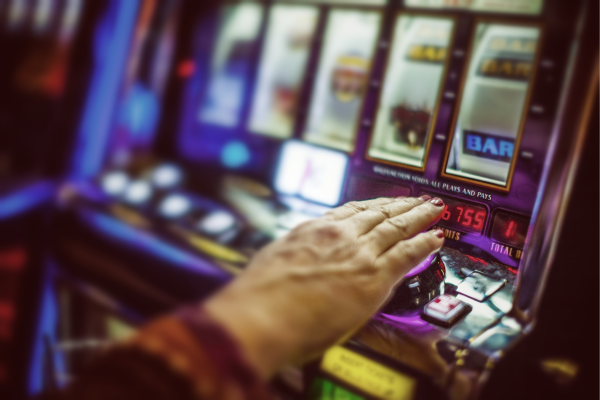
Gambling harms among Indigenous communities: A global perspective
IAGR partner, Greo Evidence Insights, provides IAGR members with a snapshot of policy-level approaches to prevent and reduce gambling-related harms worldwide. Greo is an independent, non-profit organisation that helps organisations strengthen their programmes, policies, and practices by harnessing the power of evidence and stakeholder insight.
Leading up to IAGR’s 2023 conference, Greo will summarise evidence related to topics in the conference programme. This month, Greo has shared a selection of evidence around policy-level approaches to supporting Indigenous communities experiencing gambling-related harms.
The upcoming session at IAGR2023 inspired this article, ‘Let’s have a ‘yarn’ about gambling harm in First Nations communities’ with Victoria Thomson, Deputy Director-General of Liquor, Gaming and Fair Trading, Queensland, Australia.
Gambling has a longstanding presence in Indigenous communities, interwoven with ceremonial, traditional, social, and commercial practices. Research and living experience highlight the complexities of the gambling industry and gambling harms among Indigenous communities, who are experiencing disproportionately higher rates of gambling harm relative to other populations.
Effectively addressing gambling-related harms and supporting Indigenous communities’ autonomy and self-determination requires acknowledging historical and ongoing colonisation, trauma, and social injustices. It is also important to acknowledge that while there are shared experiences and similarities across Indigenous communities globally, Indigenous peoples’ cultures and experiences of gambling delivery and gambling harms are varied and unique. As a result, jurisdictions need to respond accordingly.
How can meaningful collaboration be fostered amongst Indigenous communities, policymakers, and regulators to develop tailored strategies for mitigating gambling-related harms in Indigenous communities? What measures can be implemented to address the social and commercial determinants of health and to reduce health inequities among Indigenous people and communities who experience gambling-related harms?
Recently published gambling research
Below is a selection of plain-language summaries of research articles that explore gambling harms among Indigenous communities:
- A review of gambling interventions in Indigenous communities
- Health promotion to address gambling harms and other health-related areas in Indigenous communities
- Prevention insights: Gambling harm prevention in Chinese, South Asian, and Indigenous communities
Evidence-informed action
The following are examples of how gambling harms in Indigenous communities have been examined and addressed in jurisdictions internationally. Regulators might consider these insights when creating or revising safer gambling initiatives for Indigenous populations:
Aotearoa/New Zealand
The Māori (Indigenous peoples of New Zealand) and Pasifika peoples (descendants of Indigenous Pacific Islanders) are disproportionately affected by gambling harm. A 2020 report spotlighted how multiple services, such as The Salvation Army Oasis and Raukura Hauora o Tainui, incorporate Māori models of health to provide wrap-around supports for people who gamble and their families/affected others.
Manaaki (meaning ‘to extend mana to others and to encourage and urge on’ in Māori) is an innovative mobile app for Māori and Pasifika peoples seeking help with gambling harm in New Zealand. The app-based intervention is the first of its kind, adapted from an Australian online gambling Cognitive Behavioural Therapy programme and designed through repeated focus groups and prototype testing to engage end users as collaborative design partners.
Australia
Gambling programmes and supports for Aboriginal and Torres Strait Islander peoples in Australia are developed and delivered by Aboriginal Community Controlled Health Organisations (ACCHOs). ACCHOs develop Indigenous community-led models of gambling support services that are holistic, place-based, and innovative.
- Victorian Aboriginal Health Services (VAHS) operates a Financial Wellbeing team that provides problem gambling counselling, as well as other supports such as financial counselling, access to housing services, and social support. The team works collaboratively with VAHS programmes across the country and receives referrals from external Indigenous and non-Indigenous organisations.
- In 2019, the Mungabareena Aboriginal Corporation facilitated community consultations that informed an offering of art workshops to encourage more open conversations about gambling harms. This was one of numerous projects and initiatives supported by dedicated funding from the Foundation; an evaluation of projects between 2019 – 2023 is forthcoming.
The following 2018 article looked at three Australia-based case studies (i.e., Amity Community Services, Warruwi gambling help programme, and the Bidyadanga Gambling Diversion programme) that demonstrate how the adoption of health promotion principles and strategies is a best practice for Indigenous and gambling based initiatives and service delivery.
Canada
Gambling Support British Columbia (GBSC) provides Indigenous-specific services to individuals, communities, and organisations, which includes holistic counselling services that are guided by community-based healing practices. GSBC also offers workshops that support the use of traditional Indigenous games to reduce gambling stigma, as well as training on how to support digital health and technology use among Indigenous children, youth, and young adults.
- Indigenous services: client-centred, Nation based, and community-driven: https://www.gamblingsupportbc.ca/indigenous-services





